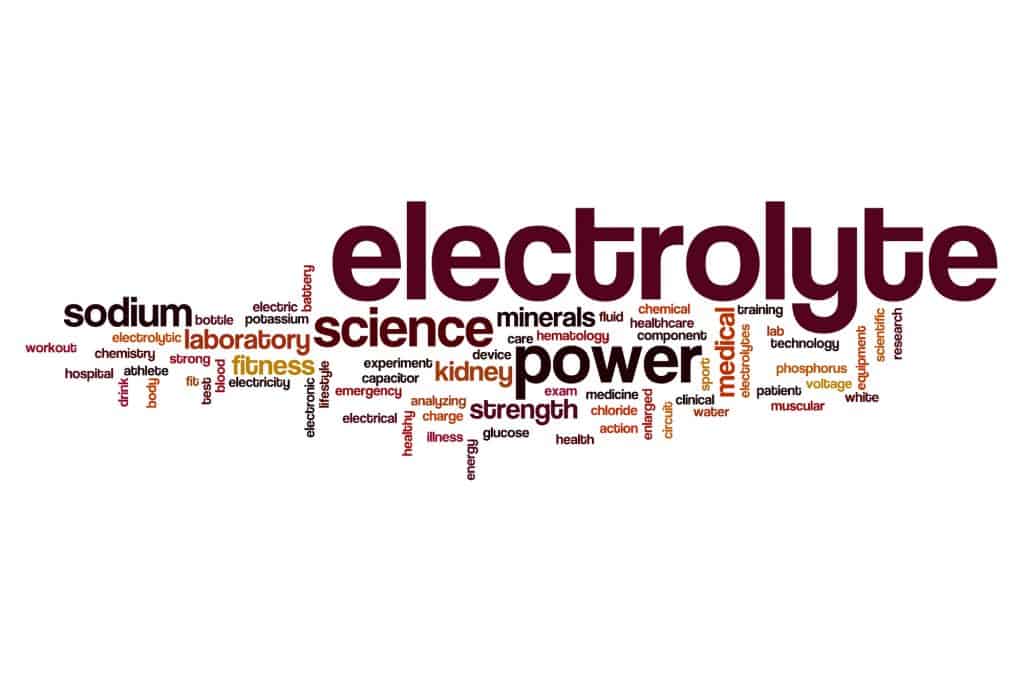
Often times (especially early) in the Omad diet, you may experience uncomfortable symptoms or feelings that leave you wondering what is happening with your body.
Sometimes these feelings can come from an electrolyte imbalance.
You have probably heard of electrolytes before but aren’t sure why they are so important.
Therefore, it is crucial to understand the importance of electrolytes and the dangers of electrolyte imbalances while eating one meal a day.
In this article, I will discuss the various types of electrolytes in your body, why they are so important, the risks of electrolyte imbalances, and how to treat and prevent them while on the omad diet.
Understanding Electrolytes
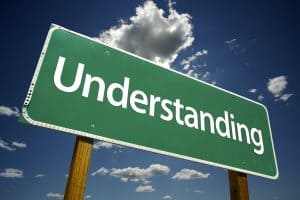
Electrolytes are chemicals or nutrients that will interact with electricity when mixed with fluids.
They specifically need water to conduct electricity.
They are essential for the health of nerve and muscle tissues because they make it easier for the nerves in your body to conduct electricity and send sparks throughout your muscles and organs.
In fact, without electrolytes, your nerves would be unable to send electrical impulses at all.
That’s because electrolyte-filled water is sent through your body when consumed.
As it spreads, this water coats the various parts of your body, such as the muscles, nerves, blood vessels, and organs. Once here, it stays until it evaporated through use.
What would happen if your body didn’t have electrolytes?
The result would not be good.
Low levels of electrolytes can cause a variety of complications in the body, such as twitches throughout your muscles and organs.
Severe deficiencies can also cause seizures, unconsciousness, and may even lead to death if your organs – especially your heart – fails to operate correctly.
Excessive levels of electrolytes – while rarer as an imbalance than a deficiency – can be just as big of a problem.
For example, excessive electrolytes may make electrical conduction too difficult for your body.
That’s because these chemicals and nutrients will be too dense on your organs, nerves, and blood vessels.
Unfortunately, nerve misfires and other issues are likely to occur when you have too many electrolytes and may trigger grave side effects.
People at a Higher Risk of Imbalances
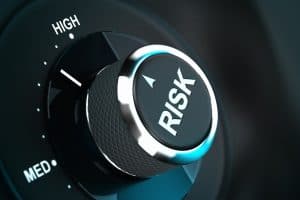
Electrolyte imbalances typically occur in specific types of people.
For example, older adults are at a higher risk of this problem because they may not stay hydrated well enough.
Even worse, their body may burn through electrolytes more quickly due to various health issues.
As a result, electrolyte levels must be tracked regularly in older adults. Checkups every three months may be a wise choice.
However, even young people can suffer from imbalances if they aren’t adequately prepared.
For example, electrolyte imbalances are particularly common in people who exercise heavily.
That’s because exercise naturally burns through your electrolytes by allowing your body to pass salt – a primary electrolyte – through your body more quickly and efficiently.
These imbalances occur because they aren’t eating healthy and a balanced plate of food on their omad diet.
Before moving on and discussing more about electrolyte imbalances, we should understand the various types of electrolytes needed by the body.
There is just a handful that you should regularly consume, even though a full list of electrolytes would include a broad range of chemicals.
I’ll discuss the differences between these types in the section below to make your omad diet and medical treatments easier and safer.
The Various Types of Electrolytes Available
When investigating the many types of electrolytes available, you may run into some confusing information about what types you should eat and which you should not.
That’s because many people confuse general electrolytes with health-related electrolytes.
For example, there are many types of electrolytes produced for industrial and commercial purposes.
These chemicals include nitric acid, chloric acid, hydrochloric acid, calcium chloride, potassium nitrate, and more.
Each serves a unique purpose that makes them useful for specific circumstances.
For example, nitric acid is used as a corrosive in many types of fertilizers.
Chloric acid is only used in particular industrial operations due to its destructive nature. Calcium chloride is the type of salt used during the winter to melt ice.
Now obviously, you shouldn’t be ingesting any of these electrolytes in your daily meals.
They are dangerous and will likely cause irreversible organ damage that may shorten your lifespan.
Some might even be immediately deadly. Instead, you should focus on the healthy electrolytes mentioned below, as these are what your doctors are discussing when saying you need more electrolytes.
Though it may seem silly to point out the differences in these chemical electrolytes, more than one person has made the mistake of trying to buy these dangerous chemicals.
Thankfully, most people should have no difficulty getting a healthy amount of electrolytes through the foods they eat every day.
Healthy Electrolytes
The types of electrolytes that you ingest to improve your health include calcium, potassium, chlorine, magnesium, sodium, and phosphate.
Each of these nutrients is available in a wide range of foods and provides many types of benefits beyond their use as electrolytes.
In fact, the section below will give you an idea of why these electrolytes are so essential and how much you need to ingest every day to stay healthy.
Tracking your omad diet every day will ensure that you can get these electrolytes in your body either through food or supplements.
Why Electrolytes are So Important to Your Health
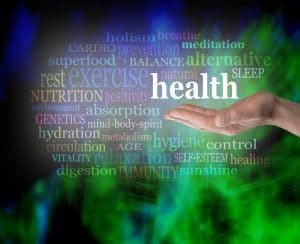
Now that you understand what types of electrolytes are available for your health, you need to understand what benefits they provide your body.
Thankfully, a healthy and balanced diet should provide you with more than enough of these vital nutrients.
However, you should be prepared to go through health changes and dietary treatments if your electrolyte levels are imbalanced.
Calcium
Without calcium, your muscles will fail to contract properly.
Unfortunately, imbalanced calcium levels may cause twitches, cramps, and spasms throughout your body.
Beyond that, calcium is also vital for proper nerve function, cell division, and blood clotting. Get at least 4.5 to 5.5 mEq/L in your diet every day to stay healthy.
Potassium
Potassium is a critical electrolyte for the fluid balance throughout your body.
Without a proper level of potassium, your body is either going to have too little fluid or too much fluid, depending on your imbalance.
Potassium is also necessary for your heart function, which makes it one of the most important electrolytes. Ingest at least 3.5 to 5.3 mEq/L every day.
Chloride
Like potassium, chloride helps to maintain a proper fluid balance in your body.
However, chloride is more important than potassium for this need.
Without it, your body is going to experience a wide range of issues that may complicate your electrolyte retention. That’s why you need to eat at least 97 to 107 mEq/L daily.
Sodium
Sodium is perhaps the most common and important of all electrolytes.
Proper levels help to balance your overall fluid levels, improve your muscle contraction, boost your nerve operation, and much more.
You need high levels of sodium – at least 136 to 145 mEq/L – every day to be healthy.
Magnesium
Though needed at a lower level – just 1.5 to 2.5 mEq/L daily – than other electrolytes, magnesium is still an important nutrient.
It will improve your muscle strength, increase your energy and protein production, keep your heart rhythm steady, improve your muscle contraction, and boost nerve function.
So make sure that you don’t neglect this vital electrolyte!
What Happens When Electrolytes Get Imbalanced
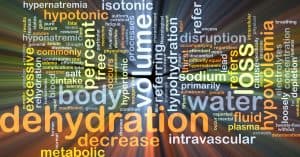
Electrolyte imbalances may happen very quickly or develop slowly over time.
It all depends on the reasons behind the imbalance.
Whatever the cause, a variety of symptoms are likely to start developing.
These symptoms include irregular heartbeats, weakness throughout your body, twitching in your muscles, confusion, rapid blood pressure changes, seizures, convulsions, and numbness.
Typically, these symptoms occur when you are low on electrolytes but may happen when you have an excessive amount.
Unfortunately, extreme levels of electrolytes may also trigger symptoms like frequent urination, lethargy, fatigue, mood problems, nausea, vomiting, pain in the stomach, heart issues, excessive thirst, weakness in the muscles, constipation, and even a coma.
While there are slightly different types of electrolyte imbalances – related to the chemicals in which your body is imbalanced – they mostly trigger the same kind of problems.
For example, hypercalcemia – excessive calcium in the body – is often caused by issues like cancer and creates symptoms like nausea, fatigue, anorexia, and dry mouth.
All of these symptoms are typically severe enough to make it pretty apparent that you need to get to a doctor immediately.
Unfortunately, electrolyte imbalances can get rapidly worse if they are allowed to spread for too long.
In some instances, a person may fall into a coma or even die due to organ failure.
As a result, it is critical to understand where this issue originates and to take steps to prevent it from ever occurring.
What Triggers Electrolyte Imbalances
While many underlying disorders contribute to electrolyte imbalances, poor dietary choices can be a likely culprit.
Thankfully, properly managing your one meal a day can avoid this problem.
An Omad Diet Low in Fruits and Vegetables
Fruits and vegetables may not be on the top of your favorite food list, but they are essential for your overall health.
In fact, fruits and vegetables provide your body with one of the heaviest doses you can get of the various types of electrolytes available.
Therefore, people who rarely eat fruits or vegetables are opening themselves up to the dangers of electrolyte imbalances.
Just as problematically, they are denying themselves the benefits of nutrients and vitamins and might end up undernourished as a result.
If you are struggling to eat a healthy amount of fruits and vegetables with your omad diet, try to drink juices for your one beverage.
While these aren’t as healthy as eating solid foods, they can provide you with a stable dose of electrolytes and prevent severe imbalances.
Make sure that you get a type that is naturally high in electrolytes or infused with higher doses.
A Low-Salt Omad Diet is Also Problematic
While limiting your sodium or salt intake may seem wise in many ways, a low-salt omad diet can cause electrolyte imbalances.
The reasons behind these imbalances – if you aren’t eating enough salt to replenish what your body uses, you won’t have enough electrolytes leftover to use.
Thankfully, most foods should contain some sodium, which should avoid serious deficiencies.
However, you may also have too much salt in your omad diet. Cutting out extra salt on your food should be more than enough to protect from excessive sodium levels.
Finding a good balance is important here. Track how much sodium you eat in each of your omad meals.
Try to aim for 1,500 mg of salt every day to find the balance between too much and too little salt.
And, when possible, try to eat a healthy level of carbohydrates. Doing so is necessary because restrictions on carbs may trigger an unfortunate electrolyte imbalance.
An Omad Diet Low in Carbohydrates May Trigger Electrolyte Imbalances
An Omad diet that that is low in carbohydrates may be a great way to lose weight, but can be problematic for electrolyte balances.
For example, people on a low carb omad diet need to take extra steps to ensure that their body doesn’t end up with low levels of sodium.
That’s because when you restrict your intake of carbohydrates, a few shifts occur in your body.
First of all, you’ll start burning fat instead of sugar and healthily lose weight. So that is good.
However, your kidneys will also stop retaining water and sodium and flush them out of your body at a higher rate than is reasonable or healthy for your body.
People on a low carb omad diet just need to increase their intake of salt and other electrolytes to avoid this problem.
Eating foods like cheese, milk, tofu, soy milk, canned tuna, spinach kale, and salmon should also help to prevent this problem.
How Electrolyte Imbalances Start
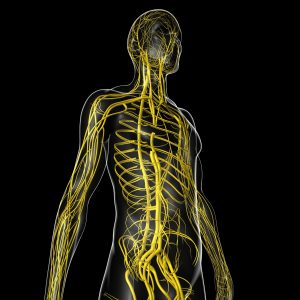
Many different situations may trigger electrolyte imbalances.
Some of these triggers are health problems that may be fairly severe if left untreated.
Others are due to medical treatment and may require adjusted medication intake. The most common of these imbalance triggers include:
- General Sickness – When people are sick, they may vomit or experience severe instances of diarrhea. Unfortunately, this may cause them to dehydrate and lost many of their vital electrolytes.
- Heavy Physical Activity – People who work general labor or who exercise regularly may lose many electrolytes and need them replaced more regularly.
- Alcoholism – Excessive alcohol consumption may damage the kidney and cause an electrolyte imbalance by making it run less efficiently.
- Heart Problems – Various types of heart problems may trigger electrolyte imbalances by affecting your fluid retention.
- Diabetes – The many complications of diabetes may cause a person to lose electrolytes or retain them.
- Kidney Failure – Whenever your kidney fails, your body is going to suffer from severe levels of electrolyte imbalance.
- Medications – Many types of medications, such as chemotherapy drugs, antibiotics, and diuretics may trigger electrolyte imbalances.
- Cancer – Whether through treatment or its effects on the body, cancer may trigger many types of electrolyte imbalances.
- Dietary Problems – People who suffer from an inability to absorb food or who eat a poor diet may be setting themselves up for electrolyte imbalances.
- Hormonal Imbalances – Individuals who suffer from hormone imbalances or other types of endocrine disorders may experience electrolyte imbalances.
Treatment Methods for Electrolyte Imbalances
When you suffer from an electrolyte imbalance, many treatment methods can help you recover.
Thankfully, catching an electrolyte imbalance early enough should make treatment quick, efficient, and effective.
Understanding the diagnostic and treatment methods available will help make it easier for you to recover from this dangerous health problem.
The Diagnosis Process

If you believe you have an electrolyte imbalance, you need to visit a doctor immediately to get assessed.
Don’t put off an appointment for one moment longer than necessary!
During the diagnosis process, your doctor will perform several steps including:
- Discussing your history of electrolyte imbalance
- Gauging your overall symptoms
- Talking about health problems that could contribute to imbalances
- Performing blood and urine tests to gauge electrolyte levels
- EKG tests – if necessary – to gauge your heart rhythm
- X-rays or ultrasounds of your kidneys
All of these diagnostic methods are designed to figure out why you are suffering from an electrolyte imbalance.
Most of the time, there is an underlying health problem that causes an imbalance. However, your diet may also be to blame if you weren’t eating or drinking properly.
Once your doctor has a better idea of why you are suffering from an electrolyte imbalance, they will come up with a treatment plan to manage your symptoms.
These treatment plans vary based on the exact issue but typically follow a somewhat similar pattern.
Managing the Underlying Issue
If you have an underlying problem – such as a kidney issue – contributing to electrolyte imbalances, doctors will treat it to ensure that it is managed.
Treatment methods will vary depending on the issue but often include dietary changes and electrolyte feeds.
Hemodialysis
In severe cases of excessive electrolytes, this dialysis treatment may be necessary. This unique treatment methods eliminates excessive electrolytes and also helps to get your kidney operating again. Hemodialysis may be necessary if kidney problems are affecting your overall health and affecting your electrolyte levels.
Tweaking a Diet
One of the best ways of managing an electrolyte imbalance is improving a person’s diet. For example, a doctor may suggest that you eat straight salt for a while to add it to your system. However, healthier suggestions include eating foods high in potassium. Your water intake may also be lowered because you may be diluting your electrolytes too much.
IV Treatment
An IV infusion of various liquids is the quickest and most effective treatment for electrolyte imbalances. Fluids like sodium chloride are carefully added to your body to help it hydrate more effectively. This treatment method is more common when people suffer from dehydration due to symptoms of sickness, such as diarrhea or vomiting.
IV Medications
Certain types of medications will increase your electrolyte levels and help you recover from an imbalance. These are added to your body in an IV to spread them more quickly. Medications include potassium, calcium, or phosphate supplements.
Oral Treatment
Oral supplements of various electrolytes may help to increase your levels of these elements in a slower and more controlled manner. In some cases, however, oral medications may be used to treat high levels of electrolytes. Preventing excessive electrolytes is as important as avoiding low levels.
Ways You Can Prevent an Electrolyte Imbalance

While there are many treatment methods available for electrolyte imbalances, your best choice here is to simply prevent one from ever occurring. Thankfully, prevention is much easier than you might anticipate.
All it takes is carefully watching your fluid intake, adjusting your omad diet in healthy ways, and taking steps to ensure that you add electrolytes to your omad diet foods and liquids.
Each of the prevention methods mentioned below are researched and confirmed by multiple different studies and doctors. And following these prevention steps mostly focuses on staying hydrated. However, others methods might be a little less obvious.
Tracking Your Urine Color
Check the color of your urine every time that you go to the bathroom to ensure that you are hydrated and have a healthy level of electrolytes.
For example, if it is very light or clear, you are very well hydrated and are ingesting enough electrolytes.
Furthermore, there should also be no smell to your urine if you are well hydrated.
If your urine is dark and smells bad, there is a good chance you are suffering from dehydration that could cause electrolyte imbalances. Drink a glass or two of water to help bring your hydration level back to normal.
Drink Liquids With High Electrolytes
While water is important for synthesizing and dissolving electrolytes, there are specialized drinks on the market that provide a high volume of electrolytes.
For example, sports drinks like Gatorade are high in electrolytes. You can drink this gatorade as your one beverage during your eating window.
Eat Plenty of Fruits and Vegetables with your Omad diet
Fruits and vegetables contain a high volume of various vitamins and nutrients.
Just as importantly, they are rich in electrolytes that may be hard to get in other ways.
Eating more vegetables or fruits than you normally eat can refresh your electrolyte levels and make it easier for you to stay healthy and happy. Beyond that benefit, eating fruits and vegetables should simply help you feel healthier than you would if you didn’t eat them.
Avoiding Electrolyte Imbalances is Critical for Your Health
As you can see, the importance of electrolytes for your overall health cannot be emphasized enough. Making sure that you avoid electrolyte imbalances is critical for your overall health and, thankfully, doesn’t have to be a major challenge if you track what you are eating and drinking with your omad diet.
Just as importantly, though, you need to make sure that you talk to a doctor about electrolytes if you feel any imbalance symptoms.
Getting professional help is not an admission of defeat but a wise way of ensuring that you are happy and healthy for a long time.
Sources
Medical News Today: Everything You Need to Know About Electrolytes
Comprehensive Cancer Center: Electrolyte Imbalance
Healthline: Electrolyte Disorders
Your Dictionary: Examples of Electrolytes
Healthline: How to Prevent an Electrolyte Imbalance
Dr. Axe: Electrolyte Imbalance
Chemocare: What Are Electrolytes?



